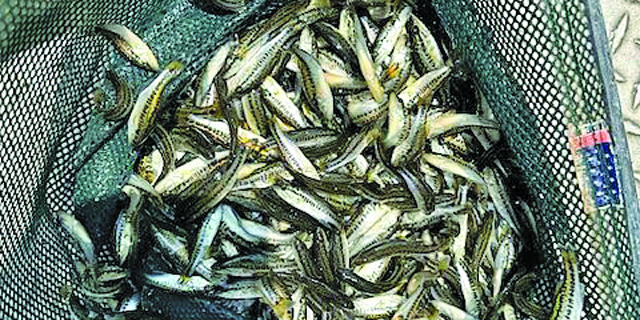Get expert advice on moving forward mentally past 2020
Published 8:00 am Tuesday, January 12, 2021
Between COVID-19 and the most active Atlantic hurricane season in recorded history, 2020 has taken a massive toll on the health of those living in South Louisiana.
According to Phyllis Babineaux, a Licensed Clinical Social Worker in New Iberia, the unique circumstances 2020 presented have greatly increased the need for mental health resources.
Trending
“People that never imagined they would have these issues, business owners are being plagued with trying to pay the bills and having no income,” Babineaux said. “2020 has thrown things at people that they never expected.”
And according to Mental Health America, Louisiana is ranked ninth in mental illness prevalence and 41st in access to care. This means that mental health problems are more common in Louisiana than the majority of other states, but the majority of other states have more resources to help their citizens with mental health problems than Louisiana does.
“We have higher incidents than other states, but we have less resources,” Dean Wattigny for the Iberia Mental Health Initiative, an organization that seeks to connect individuals in New Iberia with mental health resources, said.
But thankfully, there are ways to improve one’s mental health going into 2021. Here are some pointers.
Seek professional help if at all possible.
Therapy can do wonders for one’s mental health, so be sure to seek it out. But according to Babineaux, many people choose not to seek help for the wrong reasons.
Trending
“Very often people think there’s a stigma because they’re getting help. So they won’t go back to their appointments,” Babineaux said.
Babineaux also said many of her patients believe they can’t find a suitable mental health professional in their area, but many people are willing to drive long distances to see one.
“I’ve seen patients from Lafayette and even Carencro,” she said. “They’ll go wherever to get the help they need.”
One who’s struggling with their mental health should seek professional help, even if it’s inconvenient. Some mental health professionals offer mental health advice online as well if this is your only option.
Websites like BetterHelp can connect you with a compatible counselor based on a detailed questionnaire. Users can communicate with their counselor via text, phone or video call from anywhere with an internet connection. According to the BetterHelp website, prices for their service range from $60 to $80 a week, or $240 to $320 a month, based on the user’s therapist, the user’s location and the user’s preferences.
Couples in need of counseling can find mental health resources online as well. Websites like Regain can connect couples with a therapist from the comfort of their own home. Regain is a sister site for BetterHelp, so the prices are similar, with prices ranging from $60 to $80 a week.
There are also more niche online counseling services such as Teen Counseling, a website that offers online mental health services for teens, and Pride Counseling, a website that offers counseling geared specifically for LGBT individuals.
If you’re in need of medication, websites such as MDLive can connect you with a psychiatrist. The prices for MDLive vary wildly depending on one’s insurance. MDLive psychiatrists can help with anxiety, depression, PTSD, bipolar and panic disorders.
If price is a limitation or if you prefer peer support over professional support, check out 7 Cups. This website can connect you with trained volunteers to speak with about mental health issues on any day at any time, and it’s free.
If your child is struggling with the pandemic, the Iberia Mental Health Initiative’s YouTube page posts videos, hosted by Psychologist Dr. Annie Spell offering advice for parents and teachers on how to help children with various mental health problems that might arise due to the COVID-19 pandemic.
However, these online resources aren’t sufficient for everyone, so it’s best to see a counselor in person if possible.
Get back on your treatment.
According to the Center for Disease Control and Prevention 13.2% of adults 18 years old or older used antidepressants in 2015 through 2018, but sadly many people stop mental health medication without consulting a psychiatrist or medical psychologist. This is a big mistake.
“People don’t ask to be bipolar, or schizophrenic, but they are and very often you see these people doing well. They can maintain (themselves), and then they decide, ‘Well, I can do this on my own,’ and they get off their meds,” Babineaux said.
If you’re having trouble keeping track of your medication, apps like Medisafe can help you. Simply input your medications and when you’re supposed to take them, and Medisafe will send you notifications reminding you to take your medication.
Equally important for many is therapy, and according to Babineaux the pandemic may have interfered with routine counseling for many people. Babineaux initially had to stop providing mental health services at the onset of the pandemic, as there wasn’t a clear directive on how to operate.
“So that, you know, actually slowed things down for me, and definitely interfered with some people’s treatment, because we waited,” she said.
But now this is not the case, many social workers, including Babineaux, since adapted to the COVID-19 regulations and are once again in operation. In addition, those facing an immediate mental health crisis can call the National Suicide Prevention hotline at any time on any day. Their number is 800-273-8255.
Don’t give up hope yet.
2020 might have been a rough year, but that doesn’t mean that 2021 will be the same way. With the upcoming vaccine, it’s possible we could see a return to normalcy in the near future.
“2021 is going to be better,” Babineaux said.
She also said she thinks the coronavirus pandemic will adjust our mindset for the better and focusing on COVID-19’s “silver lining” will likely have a positive effect on one’s mental health.
“We’re going to take, I think, a greater appreciation of life and people,” she said. “And that can do nothing but good for us. It’ll build community. It’ll strengthen our families, and, hopefully, even our schools.”





